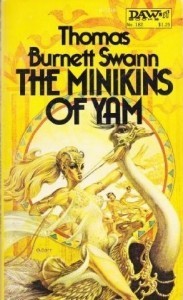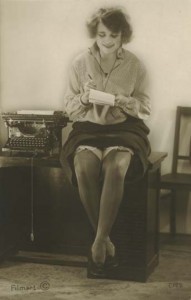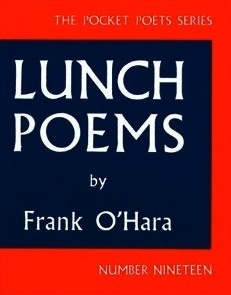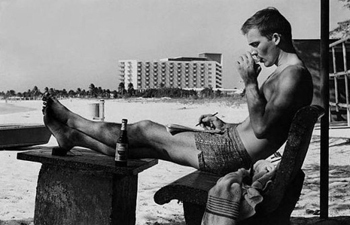The Paris Review's Blog, page 912
May 30, 2012
Mad Man
 Dick DeBartolo’s first piece for Mad was published in 1962, when he was still in high school, and his work has appeared in every single issue since June 1966. He has written for sections throughout the magazine, but his greatest claim is as a satirist of movies and TV shows—that is, as a writer of the kind of elaborate pop-culture parodies that have, arguably, been the magazine’s signature brand of humor ever since they began running them regularly, about a dozen issues into their existence.
Dick DeBartolo’s first piece for Mad was published in 1962, when he was still in high school, and his work has appeared in every single issue since June 1966. He has written for sections throughout the magazine, but his greatest claim is as a satirist of movies and TV shows—that is, as a writer of the kind of elaborate pop-culture parodies that have, arguably, been the magazine’s signature brand of humor ever since they began running them regularly, about a dozen issues into their existence.
The influence of these satires—as written by DeBartolo as well as Harvey Kurtzman, Larry Siegel, Frank Jacobs, Arnie Kogen, Stan Hart, Lou Silverstone, Desmond Devlin, and others—has ranged well beyond the realm of illustrated humor, or even comedy generally; it’s entered the cultural water supply, enriching the work of filmmakers, politicians, authors, actors, and advertisers. Once you’ve acknowledged this, you’re only one short step away from acknowledging DeBartolo’s particular influence on culture at large. Read More »
Lunch Poems, Mixtapes, Beats
Spend your lunch at MoMA with Frank O’Hara’s Lunch Poems, written while O’Hara worked at the museum.
The name says it all: Gladwell title generator.
Elif Batuman visits Orhan Pamuk’s Musuem of Innocence, with eye-opening results.
Ask Maira Kalman. She’ll answer questions live!
Watch the trailer for On the Road.
A literary mixtape for … the brain? Eyes?
May 29, 2012
Authors in Bathing Suits
Summer has kicked off, and hereabouts, at least, it actually feels like it. In honor of the stifling humidity, enjoy Flavorwire’s gallery of writers in bathing suits. Chances are you’ve seen Sylvia Plath and Papa in their respective kits, but Eugene O’Neill? Anne Sexton? Special points to Hunter S. Thompson, left, for actually working (and drinking) in swimwear.
America’s Newest Sweetheart
 Ashley’s father died from a brain aneurysm two years ago. Chantal didn’t talk to her father for the last fifteen years of his life. Alli’s father came to her and was like, “Oh, you have a little sister.” The other Ashley’s father struggled with addiction; she hadn’t been in touch with him for years. “What makes you you?” the Bachelor had asked them.
Ashley’s father died from a brain aneurysm two years ago. Chantal didn’t talk to her father for the last fifteen years of his life. Alli’s father came to her and was like, “Oh, you have a little sister.” The other Ashley’s father struggled with addiction; she hadn’t been in touch with him for years. “What makes you you?” the Bachelor had asked them.
It seems on the face of it like an awful idea to reveal deeply personal things about yourself on a show like The Bachelor, since to do so is to trivialize not only your own life but the lives of the people who love you, to cede primary control of your identity to People and Us Weekly and the Internet comment monster. But if you want to win The Bachelor and/or win the heart of the Bachelor, sooner or later you’re going to have to tell the saddest story you know about yourself. It will be about your father, and it will make you cry. As you wipe away the tears, you'll smudge your dark eye makeup. The Bachelor will put his arm around you, maybe run his hand through your hair, maybe even kiss your forehead. You’ll laugh and say, “I can't believe I’m crying.” The Bachelor will tell you it’s okay to cry. He’ll be so grateful that you finally made yourself vulnerable for him. He really will. He knows it’s not easy for you to open up. Those tears will tell him you’re here for the right reasons.
Watch: The Great Gatsby, 1926
While Baz Luhrmann’s Great Gatsby trailer is on everyone’s lips, it’s far from the first time F. Scott Fitzgerald’s novel has been captured on celluloid. Everyone remembers the 1974 Robert Redford vehicle, but there was also the 1949 adaptation and, before that, a silent 1926 version scripted by Fitzgerald himself. All that survives—to anyone’s knowledge—is the footage that follows.
In Memoriam: Marina Keegan
It is with deep sadness that we note the death of our reader Marina Keegan.
Marina graduated last week from Yale, where she was a finalist for the Wallace Prize in creative writing, a leader of the Occupy Morgan Stanley protest, and a staff writer for the Yale Daily News. One of her most popular articles, on the path from Yale to Wall Street, earned her a guest column in The New York Times Dealbook. A musical she wrote, Independents, is set to be performed this summer at the New York Fringe Festival.
She died Saturday afternoon in a car accident at the age of twenty-two.
Marina came to the Review recommended by her classmates, who described her as the star writer of their class. She was funny, self-assured, blazingly bright, full of mature dedication, and passionate for life. In her final column for the Daily News, she exhorted her readers to “make something happen to this world.”
Our hearts go out to her family and friends.
Singing Babushki, Bartending Poets, Cupcakes
Cupcake invasion: American terminology replaces fairy cake among British children.
At 62 White, we’re a bit obsessed with the Buranovskiye Babushki.
Nature lovers? Meet the weekly Bookbirder report.
The Bard of McSorley’s.
Saddam Hussein’s daughter seeks a publisher for her father’s memoirs.
May 25, 2012
A Little Vacation from Writing
The most obvious attraction of quotation is that it gives you a little vacation from writing—the other person is doing the work. All you have to do is type. But there is a reason beyond sloth for my liking of quotation at length. It permits you to show the thing itself rather than the pale, and never quite right, simulacrum that paraphrase is.
—Janet Malcom, The Art of Nonfiction No. 4
Happy Memorial Day! Enjoy the long weekend.
What We’re Loving: Bejeweled Ostriches, Robot Dancers
 I know it’s dumb to bet on which novels—which anything—will endure and which won’t. So why, reading Endless Love, Scott Spencer’s 1979 novel of romantic obsession, do I keep thinking, This will outlast us all? Maybe because it reminds me of other novels that have stayed fresh over the decades without the benefit of “classic”—or even cult classic—status: books like Victory, or Rebecca, or The Transit of Venus or The White Hotel or, in a funny way, Mating. You could make a much longer, even more random list, but there’s something they all have in common, something to do with technical sophistication, urgency, and shamelessness, as if the plot came welling up out of a nightmare. They are, you might say, too strong to be classics; they don’t need champions or explaining. People will just keep making each other read them. —Lorin Stein
I know it’s dumb to bet on which novels—which anything—will endure and which won’t. So why, reading Endless Love, Scott Spencer’s 1979 novel of romantic obsession, do I keep thinking, This will outlast us all? Maybe because it reminds me of other novels that have stayed fresh over the decades without the benefit of “classic”—or even cult classic—status: books like Victory, or Rebecca, or The Transit of Venus or The White Hotel or, in a funny way, Mating. You could make a much longer, even more random list, but there’s something they all have in common, something to do with technical sophistication, urgency, and shamelessness, as if the plot came welling up out of a nightmare. They are, you might say, too strong to be classics; they don’t need champions or explaining. People will just keep making each other read them. —Lorin Stein
After my most recent binge at Westsider Books, I found myself holding a copy of something titled The Minikins of Yam. Maybe it’s all these rainy afternoons, but lately I’ve missed the middle school era of my reading life, when “guilty pleasure” was the only category. I freely admit that I chose this paperback by Thomas Burnett Swann, an almost entirely forgotten 1970s author of “neo-romantic fantasy,” solely on account of its awesome cover art, in which a horned lady sallies forth atop a bejeweled ostrich. But Yam delivers exactly what George Barr’s cover art promises: basilisks, subterfuge, and beast-headed gods. If you, too, are an adult human still coping with the end of Harry Potter, look for one of these gorgeous DAW paperbacks to help fill the void. —Allison Bulger
Happy Memorial Day Weekend! If mysophobia (or better options) keep you from the opening of public pools this weekend, I suggest reading David Foster Wallace’s “Forever Overhead,” a story from Brief Interviews with Hideous Men in which a pubescent boy celebrates his thirteenth birthday at a local public pool. You get splash fights, diving-board lines, too-tight suits, Marco Polo—the stuff of poolside dreams—and the fierce awkwardness and exposed, liquid thoughts that public pools and puberty bring forth. Wallace tells the story with manic detail and emotional exactitude, and, as always with dear DFW, it’s at once playful and meditative, unlikely and perfect. —Elizabeth Nelson
I’ve been home sick for the past two days and have found that Space Oddities: A Compilation of Rare European Library Grooves from 1977–1984 is the perfect sound track to a fever. Not a ringing endorsement? Well, you may just have to listen to this collection of carefully culled (by French DJs, naturally) clips from commercials, movies, and TV shows for yourself. I still have my ’08 CD, but good news: the whole album is on Spotify! Try “Robot Dancer.” —Sadie Stein
My experience with Egyptian art is limited mostly to the blockbuster stuff—I remember seeing traveling shows in Texas, where the heavy eye makeup and big jewelry of the statuettes and masks seemed to make a certain kind of sense—and it’s impressive, to say the least. But now I’m finding myself wowed by the smaller, less overtly extraordinary objects in the Met’s “Dawn of Egyptian Art” show (I’ve spent a lot of time with the catalogue as well). The flash of gold and scale is replaced here with the innate beauty of natural materials and form, like a frog carved from a black stone flecked with white; a basket filled with tiny fish, all incised into a single piece of powdery steatite; and the head of a bovid chiseled from clay-hued flint. I’m also unduly impressed with the various hippopotamus-shaped objects—not surprising, since I’ve long been the proud owner of a tubby blue “William.” —Nicole Rudick
Sexy Typewriters, Wodehouse Nonsense

Apparently, typewriter erotica was a thing in the 1920s. (NSFW-ish.)
The most influential lyricist in music? T.S. Eliot.
Philip Roth writes in to the Atlantic to set the record straight on his mental health.
The Wodehouse random quote generator is a glorious time-waster.
The New Yorker tweets Jennifer Egan’s new story, 140 characters at a time.
The Paris Review's Blog
- The Paris Review's profile
- 305 followers






